The actor is back on Irish soil in Steven Knight’s Netflix epic. Reckoning with the dark stuff that built a global alcohol dynasty – in 1800s Dublin, there’s a crisis of succession, a killer moustache, murky dealings and illicit homosexuality all at play. It’s the kind of turn that could anoint the 31-year-old as television’s next great leading man.
The first time we see Arthur Guinness, he stands before a mirror next to his brother as they dress for their father’s funeral. “You’ve been in London so long, all that champagne has washed the Irish off your tongue,” Edward accuses as he fumbles with his tie. He is seven years Arthur’s junior yet markedly more responsible. There’s a detectable smirk beneath Arthur’s curled moustache, his eyes shining with the hubris particular to those who live with wealth not as an asset but as a condition. Not a fur coat you shrug on and off, but something that sinks into your skin. It’s a way of entering a room, a righteousness felt in one’s posture, smile and the way they grip a hand to shake it. He ties a perfect knot – a man so assured of his place in the world it is almost obscene.
The opening scene between the two brothers is a keyhole glimpse into the world of House of Guinness, Netflix’s dynastic epic from Peaky Blinders creator Steven Knight, with Anthony Boyle as its lead. “When I read [Arthur] on the page, I just thought, ‘I haven’t read a character like this for years,’” says Boyle, calling from Canada on location shooting his next project, cryptocurrency drama, The Altruists. “He’s so full of life and complicated and full of rage. When I looked him up, I saw a photo of him and he’s just staring down the barrel of this lens, and he’s cocked his hat to the side. He had so much power and heat behind his eyes.”
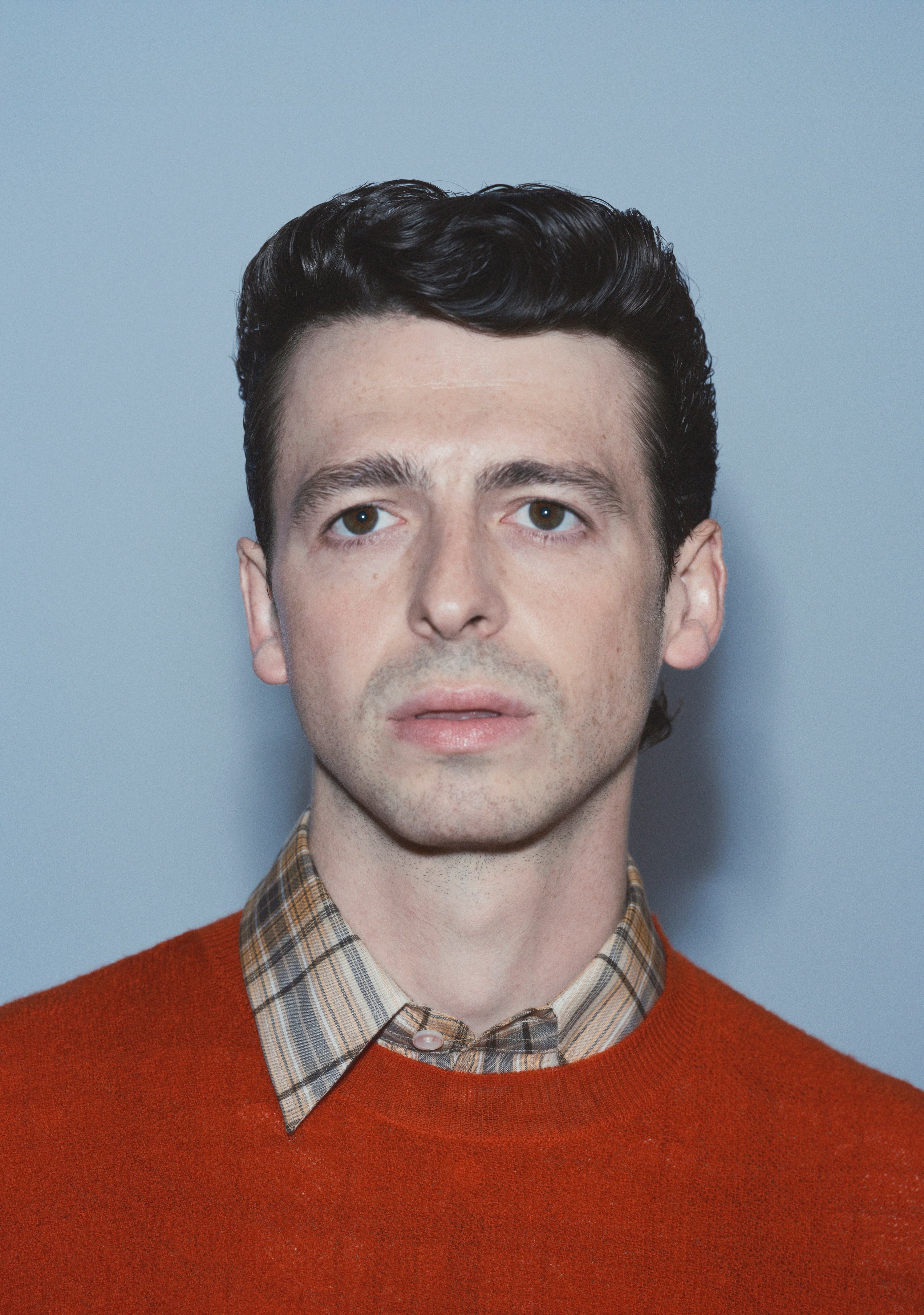
Anthony wears jumper & shirt CELINE
Behind Boyle, today, sits a vista which captures the highest Romantic ideal – a vast lake surrounded by an unending forest. It’s the kind of countryside which would humble anyone’s illusions of self-importance. And yet, Boyle notes, he only just discovered that the Guinness family owned vast swathes of property in Vancouver and financed and built the iconic Lions Gate Bridge. Their wealth was such that the landscape itself across continents has been forever changed.
House of Guinness finds its setting in a 19th-century Dublin as dark as the “black velvet” upon which the Guinness family built their extraordinary empire. The series begins in 1868 with a crisis of succession. When the family patriarch Benjamin Guinness dies, the family’s wealth, astounding property portfolio and political influence hang in the balance between his four dysfunctional children. They gather to hear his will: Benjamin Jr (Fionn O’Shea) is a drunk, and Anne (Emily Fairn) has the misfortune of having been born a woman, which leaves the question of what lies in store for Arthur and Edward (Louis Partridge). Their father leaves a particular instruction. The two brothers must run the company together or forfeit their inheritance entirely.
It’s a reality which shatters Arthur’s vision for his future, and Boyle’s portrayal reckons with a man of suppressed desires and snuffed ambition. The wealth which sustains him is also his ball and chain. Freedom, it turns out, is the one thing money can’t buy.
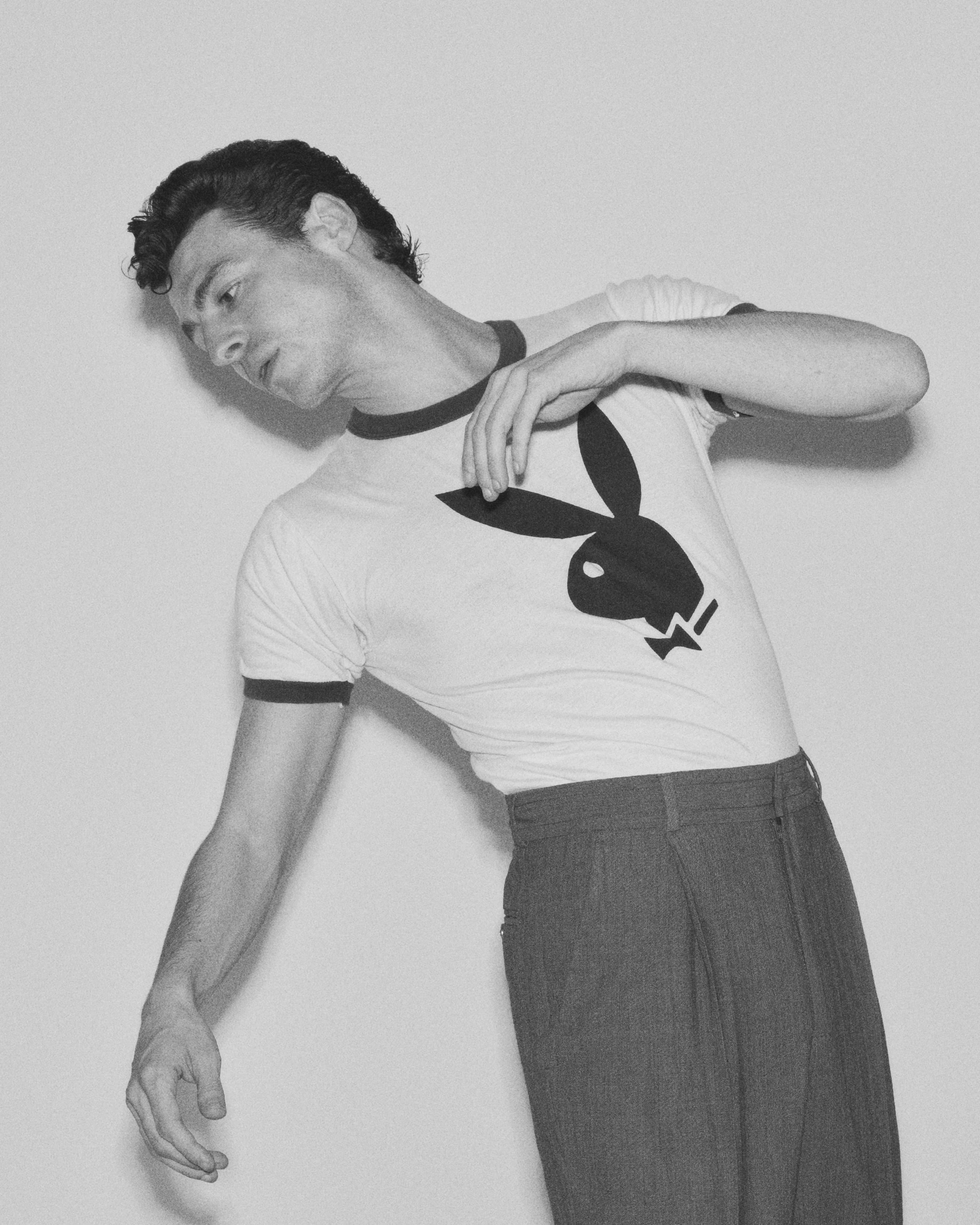
Anthony wears t-shirt STYLISTS OWN; Vintage trousers VERSUS
The role underlines Boyle, realising the full scale of his gifts as a leading man. House of Guinness succeeds a string of shrewdly chosen roles which have cemented his reputation as an actor to be found where there is rich, deeply human storytelling. Take Masters of the Air – Tom Hanks and Steven Spielberg’s 2024 spiritual successor to Band of Brothers, in which Boyle is flanked by the likes of Barry Keoghan, Austin Butler and Callum Turner – playing an American World War II navigator of the 100th Bomb Group facing some of the most dangerous missions of the war. Just three months after finishing the role, Boyle pivoted from heroism and virtue to play John Wilkes Booth, the assassin of Abraham Lincoln, in Apple TV+’s Manhunt.
After entrenching himself in these roles of American myth, he felt a calling, however. “I had been telling these stories and, really, I wanted to come home and tell stories about Ireland,” he tells me. The 31-year-old was born and raised in Belfast, and his appearance last year in Say Nothing – an FX adaptation of Patrick Radden Keefe’s lauded 2018 literary account of the Troubles – saw him return to the streets of his childhood, playing IRA officer Brendan Hughes. While the role of Arthur Guinness sees him back on familiar soil, you could say for proud Irishman Boyle, it’s his ideological foil. A prolific unionist who went to great lengths to erase his Irish accent, it’s only in Arthur’s drunken sadness – as Edward notices – that his Irish intonation reveals itself again.
“I think Steven Knight is a genius,” says Boyle, “and it was just an absolute joy to create this character with him.” A mark of any Steven Knight character is their three-dimensionality: the way their warring impulses and contradictions hold the mirror up to ourselves. “I wanted people to feel for him and love him in one scene and sort of hate him in the next, because that’s how I felt when I was reading him,” Boyle explains. “I felt like he was a really complicated, kind of fucked up character. Two things can be true: you can enjoy watching someone but hate their decisions. You can dislike them as a person but like them as a character.”
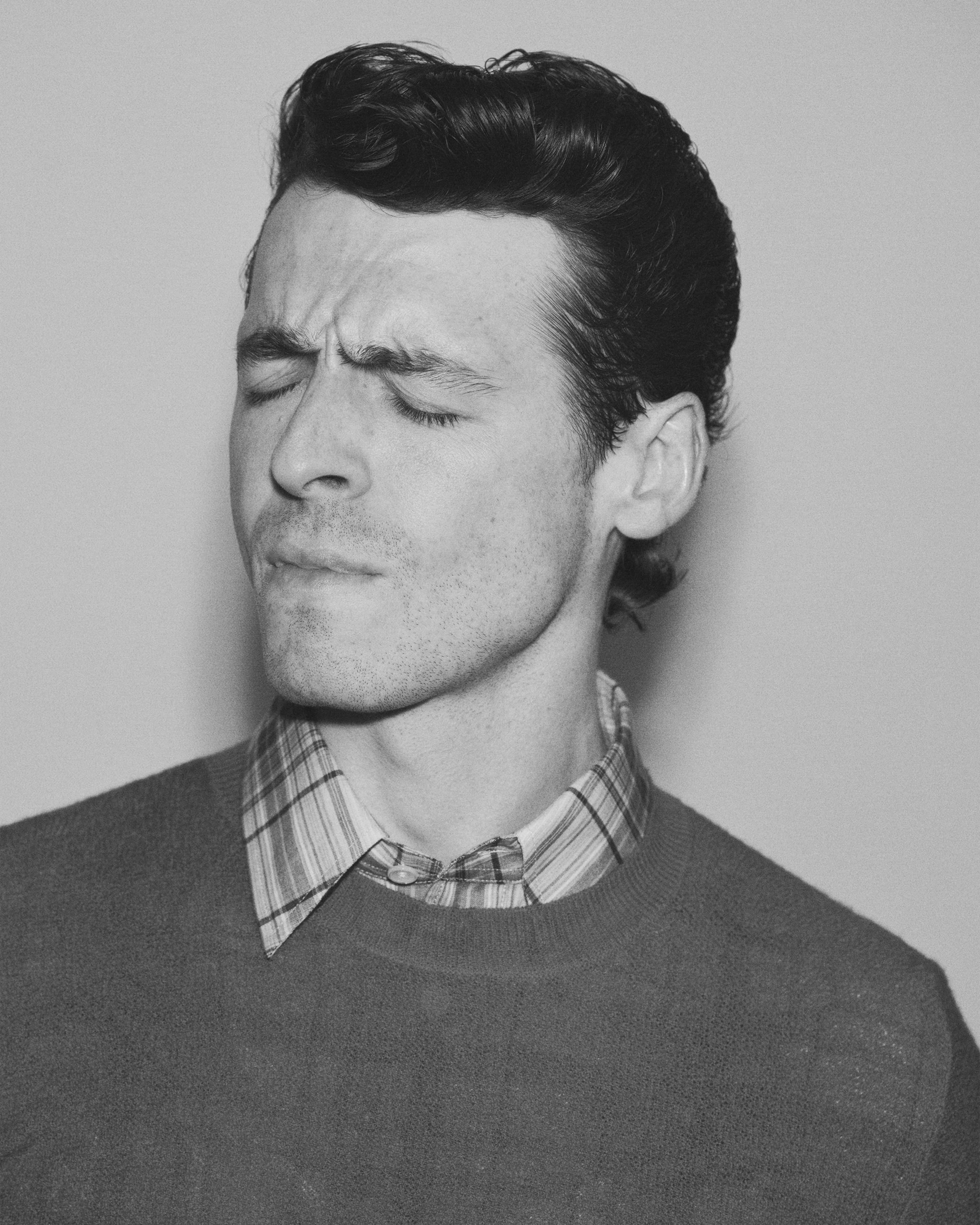
Anthony wears jumper & shirt CELINE
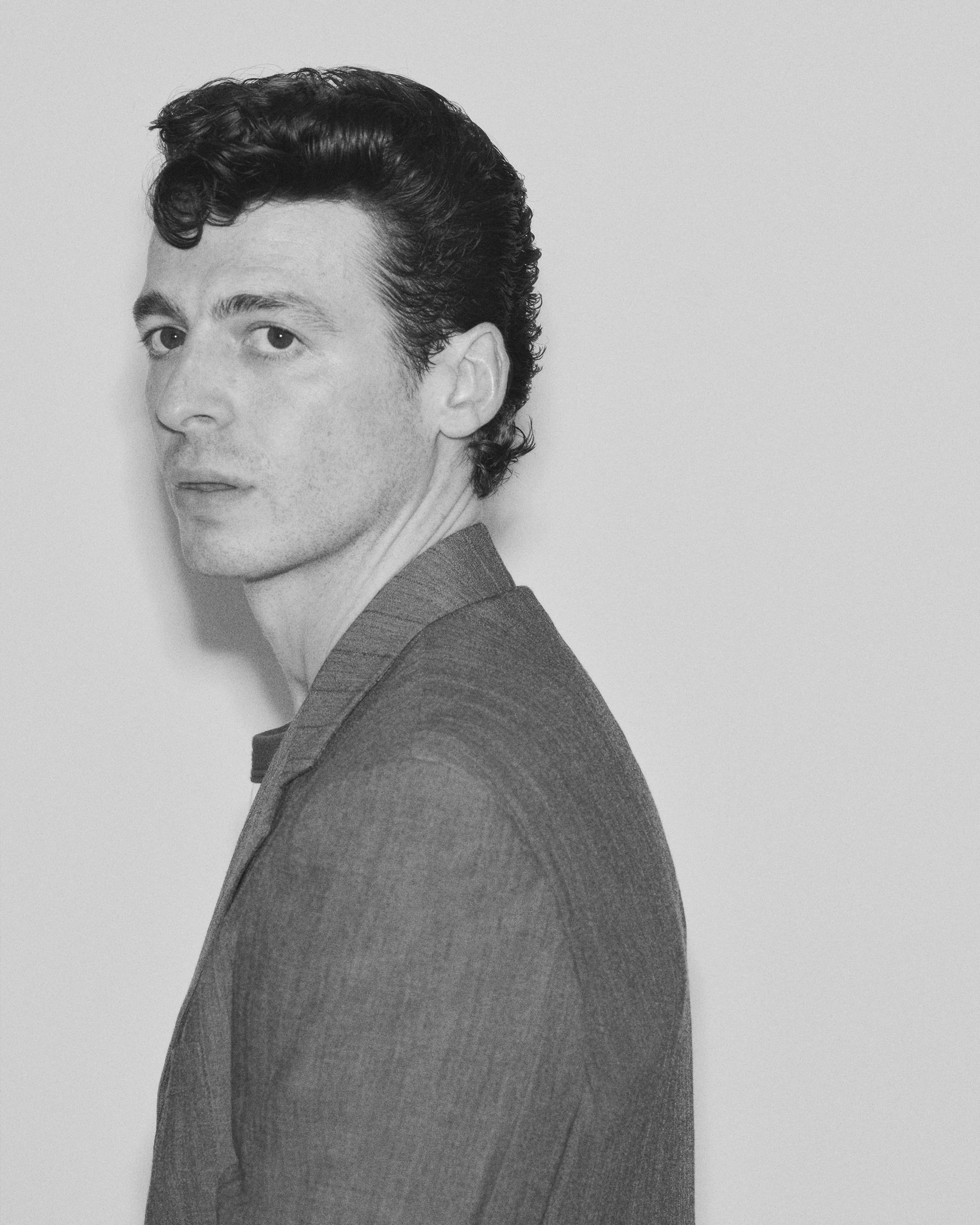
Anthony wears blazer VINTAGE VERSUS
Boyle looked to similar dynastic tales like The Sopranos or Succession – one of his favourites and already being paralleled with House of Guinness by critics at the time of writing – to express the particular dysfunction that so often seems inseparable from lives entwined with wealth and power. The kind of tension within Arthur that sees him view the Caravaggio hanging on his wall as little more than a mundane decoration. Its inestimable cultural value registering not even remotely. “I was at an art gallery and I saw this rich kid on his phone walking past these beautiful works of art,” Boyle explains, “and I wanted that to be a part of Arthur. He’s grown up with the most breathtaking views you can imagine. He doesn’t even look at the servants or acknowledge them. That’s just his life, right? In his mind, he shouldn’t have to look at people unless they’re of the same social status as him.”
I ask Boyle how he feels a man like his character would manifest in the modern world. “He’d love Tinder. He’d love it, man. I think he’d do very well. I can imagine he’d be having a lovely time sharing all his opinions on TikTok. In many ways, he’s a modern man.”
One element of his life was distinctly at war with the conservative Catholic norms of the era in Irish history he was born into. Arthur’s central conflict – the very thing that exposes a volcanic rage in him, as well as an aching vulnerability – is his homosexuality. It’s political, religious and social lighter fluid for a family whose power depends on controlling all three realms. And even though we see Arthur in love, all the wealth in the world can’t buy his freedom from the social mores he finds himself up against. His marriage to the well-connected Lady Olivia Hedges (Danielle Galligan) is agreed with the understanding that it will not involve sex, decided upon between both parties with mutual delight.
When he allows the mask to slip and Arthur indulges his sadness, Boyle wanted that to manifest in his voice – his first line of affectation. “If you’re doing an American or English accent, the hardest words to cover up are the words you use when you’re a kid, which are connected to emotions,” he explains. “Words like ‘Home’, ‘Mum’, things like that. When you’re shouting or crying, those are the hardest to cover up because you’re really feeling it, and it brings you back to an instinctive place. It made sense to me that his idea of himself would slip when he’s really sad and not performing for anyone.”
Beneath the lashings of gothic darkness and humour which make House of Guinness such a delicious watch is the truth that wealth does not bring happiness. The show is a precursor to what would come to be known as the Guinness family ‘curse’, a series of tragedies which included falls from English mountains, political assassinations in Egypt, overdoses, suicides, illnesses and freak accidents. “I don’t think this show glorifies their wealth at all,” notes Boyle. “It shows you that real happiness comes from human connection and love. In the second half of the show, you’ll see all the people who actually want to be with each other can’t be with each other because of the system put in place by their social class and all that bullshit.”
How did Boyle prepare? “I just drank loads of Guinness,” he smirks. That and replicating the “pretty bad boy moustache” Arthur Guinness would famously peacock – which, as it happens, Boyle still sports today even as he’s filming The Altruists.
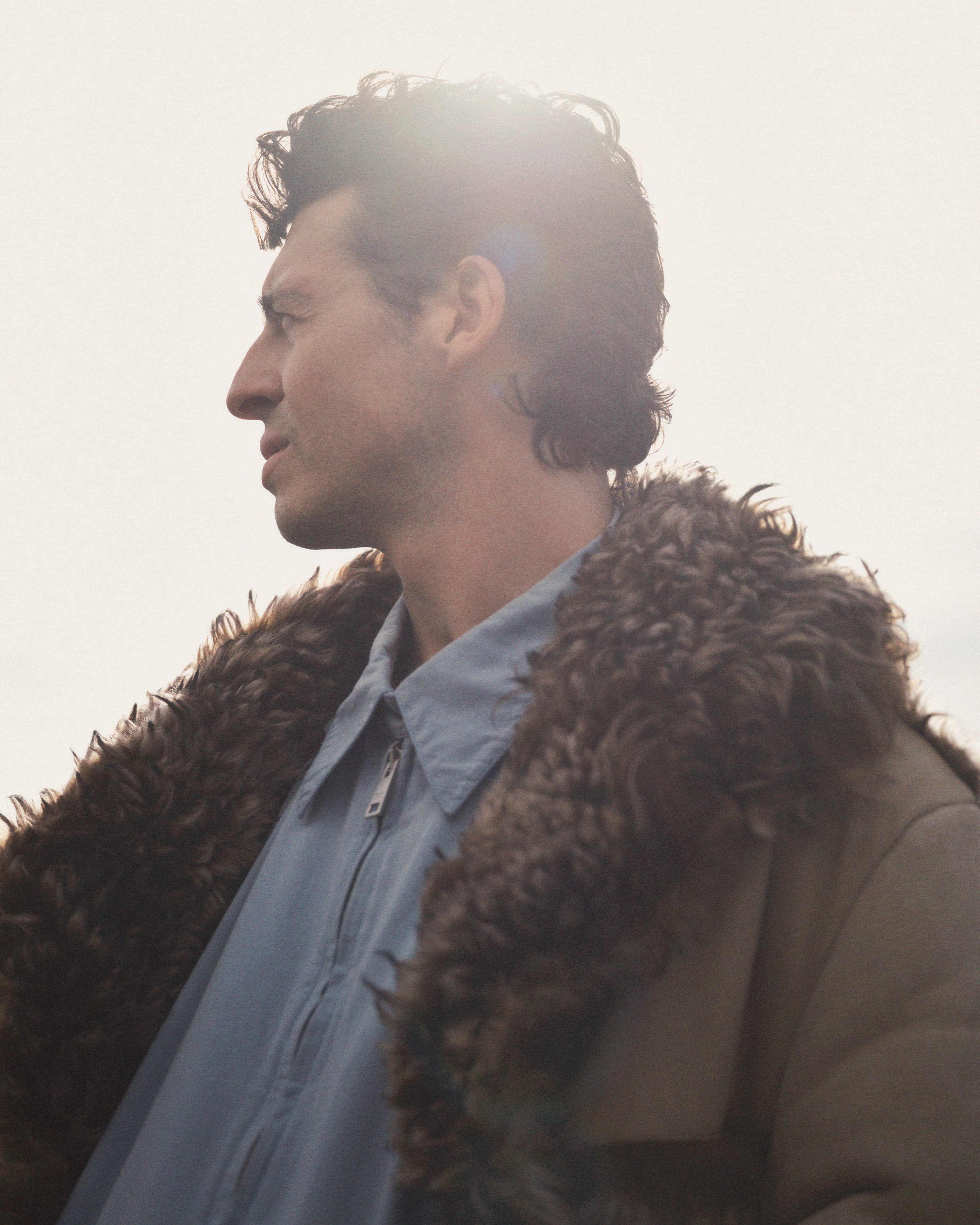
Anthony wears jacket & jacket PRADA
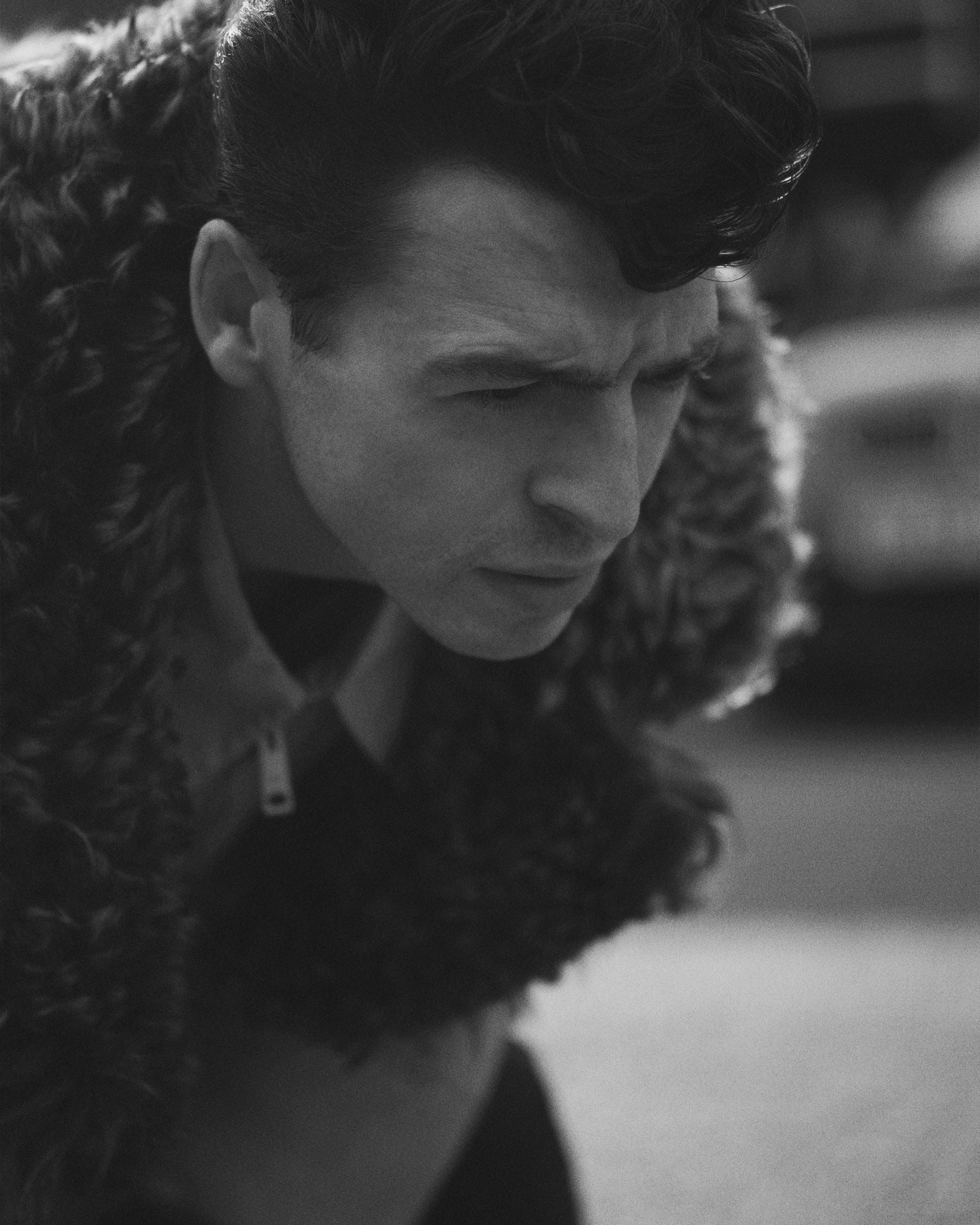
Anthony wears jacket & jacket PRADA
“It’s funny, sometimes you do a load of prep and you know exactly where they were born, what they had for breakfast as a kid, and, sometimes, it’s just instinct,” he elaborates. “The voice was important for me to perfect, but also his walk. I remember doing a play on Broadway and seeing the male ensemble dancers walking down Ninth Avenue. They would have long, straight backs and outstretched torsos – very feminine but also very masculine at the same time. And that was the pocket I wanted for Arthur. The masculine sense of taking up space and a real sense of femininity. Other than that, I just tried to learn the lines and not bump into the furniture.”
As a child, Boyle lived with Legg-Calvé-Perthes – a paediatric hip disorder that caused an erosion in part of his leg bone. Confined to a wheelchair for several years, he would observe children playing from a window and dream up dialogue between them; the traditionally masculine avenues of sport were out of the question, and so from the sidelines he nurtured a keen sense of observation which laid the foundation for the creative force he would become. Though his grandfather painted, the arts weren’t otherwise a prominent fixture in family life. Boyle’s parents had “normal” jobs – his mother a receptionist, his father working in security. “We didn’t go to the theatre. We didn’t see museums. If we went to the cinema, it was to see The Lion King or Toy Story. We weren’t sitting down with wine and cheese, watching French cinema.”
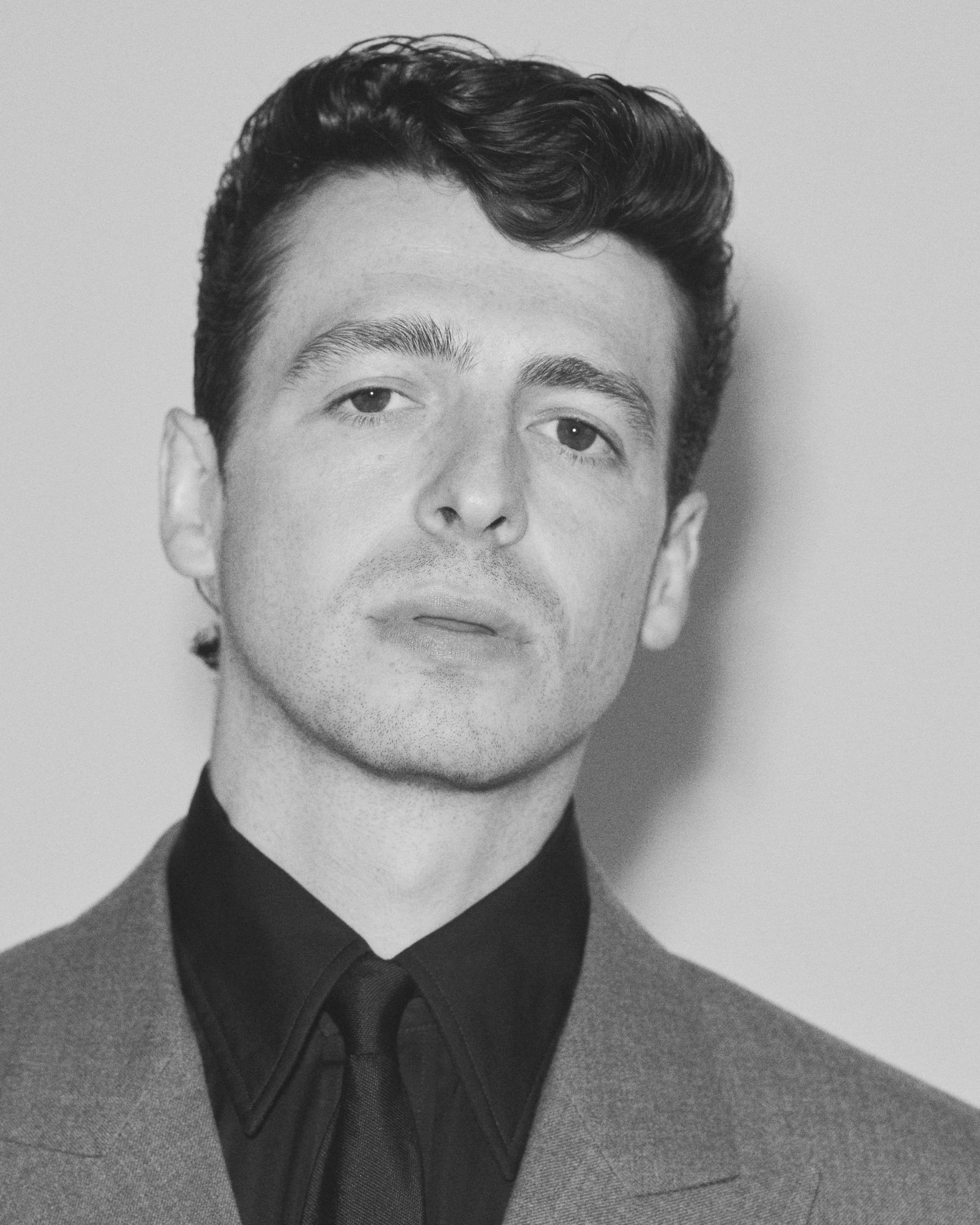
Anthony wears full look GIVENCHY BY SARAH BURTON
However, his childhood in West Belfast – a creative axis in the city – meant that art and culture were still only ever streets away. Living in a nation famed for its natural poeticism and ability to produce artists also meant that creative iterations of masculinity felt as revered as the kind displayed on the rugby pitches. “I grew up seeing men performing in bars, and so acting never felt like an unmasculine thing. It felt very, very normal. Even though most men around me were boxers and footballers, I was never discouraged from it or bullied for it. There was no shame about it. It was a cool thing to do.”
Though he was expelled from school when he was sixteen, he always loved poetry. He distinctly recalls reading Seamus Heaney’s Mid-Term Break, and its impact on him was so immense that he wanted to be in the poem itself. This was the way Boyle would respond to the art that moved him: after having watched life unfold from his bedroom window, he resolved to seize everything with both hands. To act was to become inseparable from the story.
After he began seeking out acting jobs following his departure from school (including a stint in local ghost tours), an acting teacher saw him in an amateur play and encouraged him to attend the Royal Welsh College of Music & Drama. Enrolling in 2013 for a BA in Acting, by his final year in 2016, he was cast in the debut run of Harry Potter and the Cursed Child, first in London’s West End before transferring to Broadway in 2018. His turn as Scorpius Malfoy earned him both an Olivier Award and a Tony nomination.
Six years on, Boyle now finds himself at a critical turning point where the roles he chooses define who he becomes in the cultural imagination. The last few years have been rich in period dramas. “I think I’ve just got a very white, generic face, and if you squinted at me long enough, you’d think, ‘I guess he could play him!’” he laughs. And while it was the fantasy realm that saw his talents first officiated with award nods, social realism is the domain he’s long been drawn to most. “I remember watching This Is England on Film4 late at night and thinking, ‘This is what I need to dedicate my life to, whatever this is.’ When people talk about an author reaching out and grabbing you, or feeling like you were the only person in the world who had that thought or had that feeling or had been through that situation, that’s what I felt like when I watched the films of Ken Loach, Shane Meadows or even Steve McQueen’s Hunger. It felt like someone was just reaching out to show you you’re not alone.”
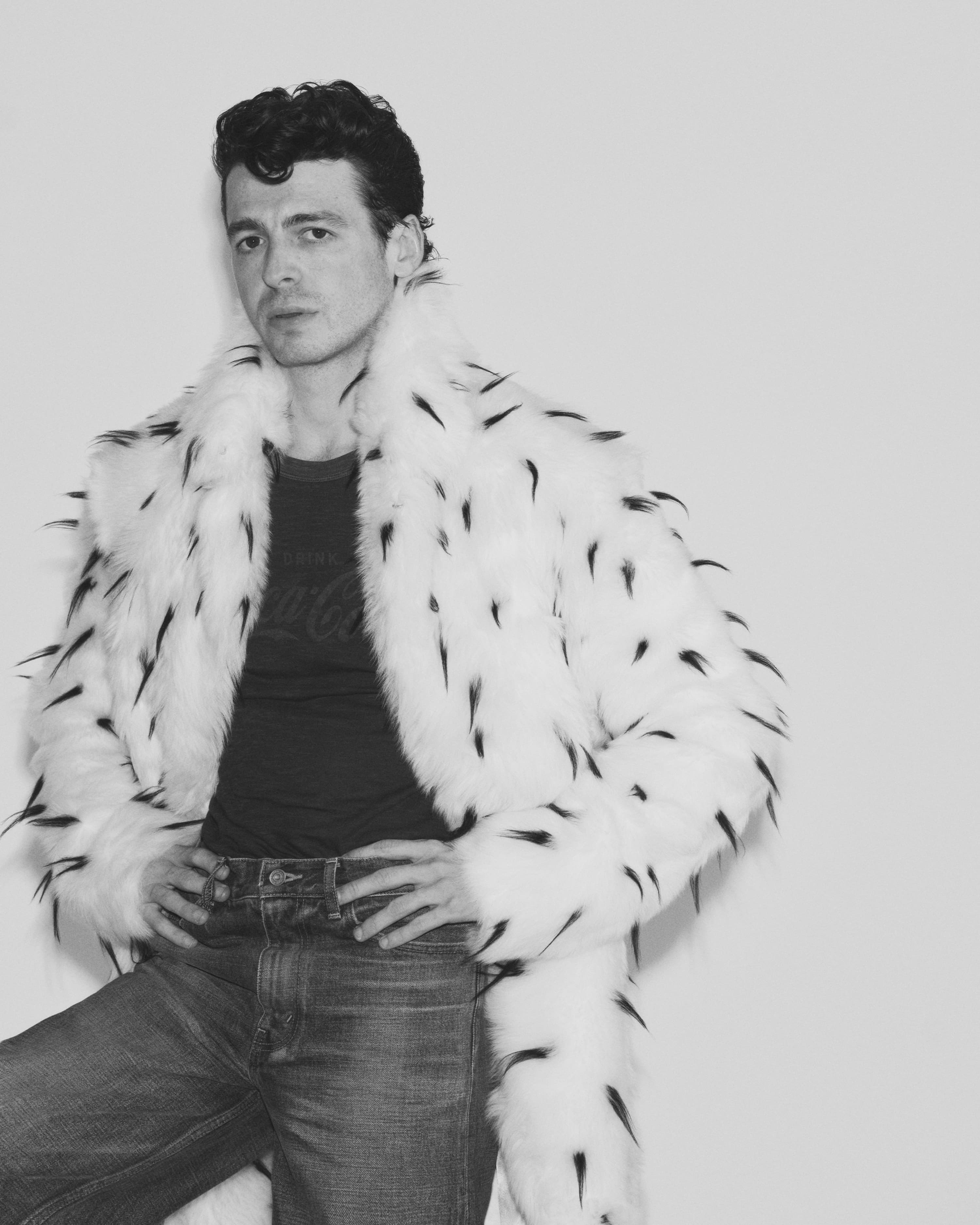
Anthony wears coat MCQUEEN; Tshirt VINTAGE D&G; Jeans CELINE
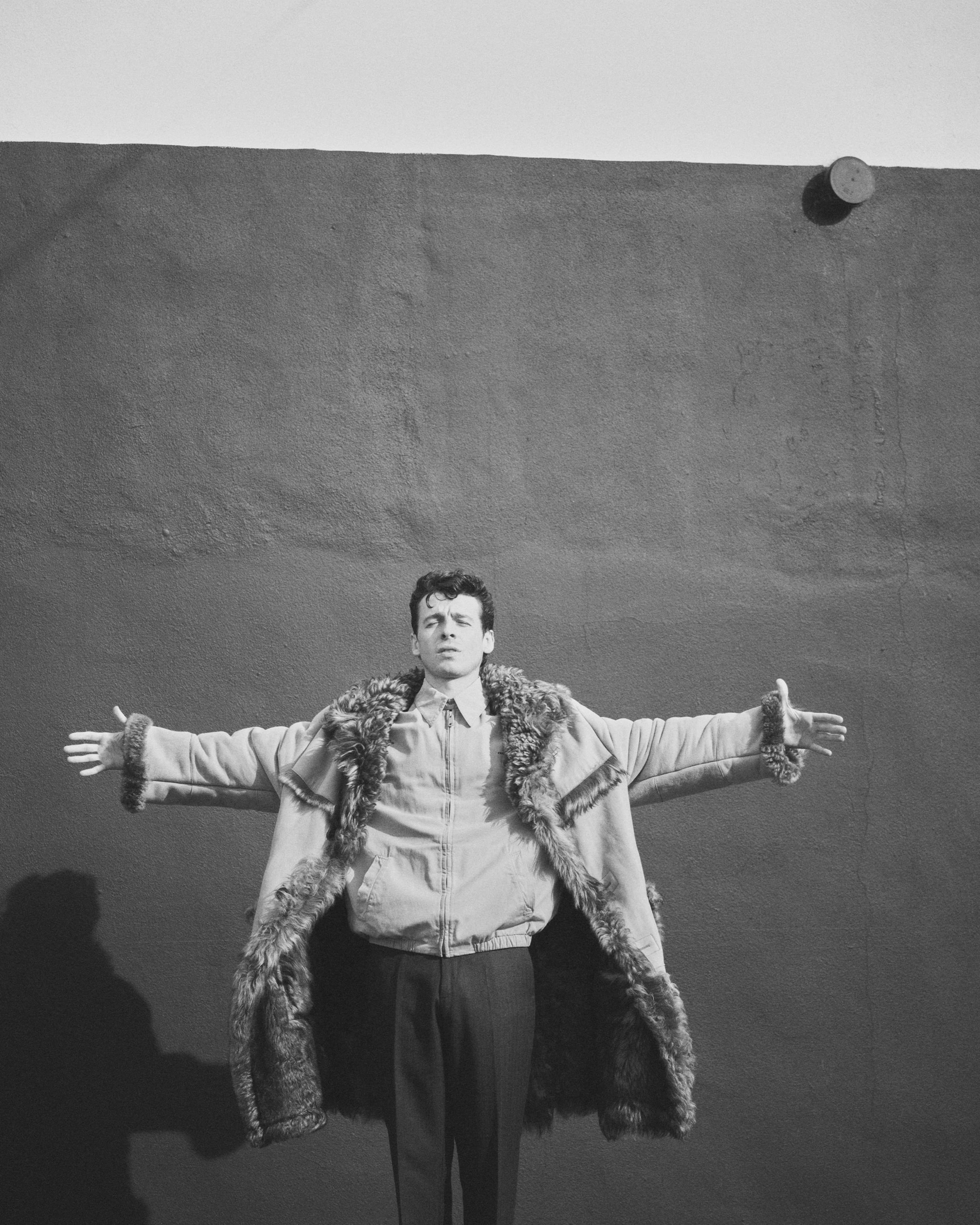
Anthony wears full look PRADA
When I ask what the creative challenge was in playing Arthur Guinness, in one of the most significant roles of his career, Boyle answers simply: “I don’t really think of it as a challenge. I see it as a joy.” He watches his performances back only once, always with curiosity – and with any luck, a measure of delight. Boyle is not the kind of actor to be burdened by doubt. His performances aren’t defined by struggle or sacrifice. He lives a charmed life, he knows, and the absurdity that he has arrived here at all gives him a remarkable levity.
He believes the greatest lesson he learned through his performance in House of Guinness is: “[That] it’s such a privilege to be here.” Also, “To take the work seriously but not take yourself so seriously.” And there was one more thing – more aesthetically-based, but equally consequential. “I love having a moustache,” he enthuses. “It genuinely feels so good.”
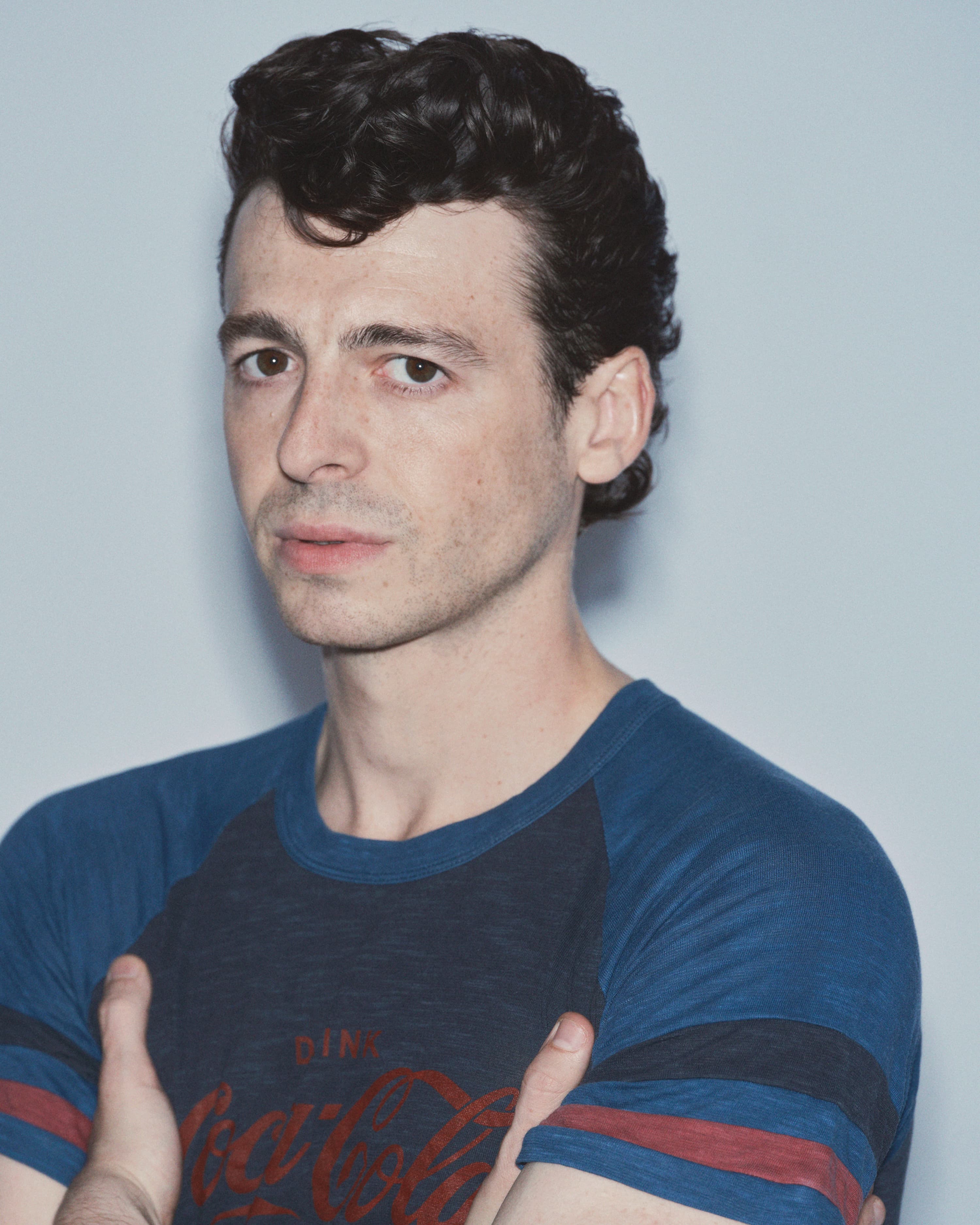
Anthony wears vintage T-shirt D&G
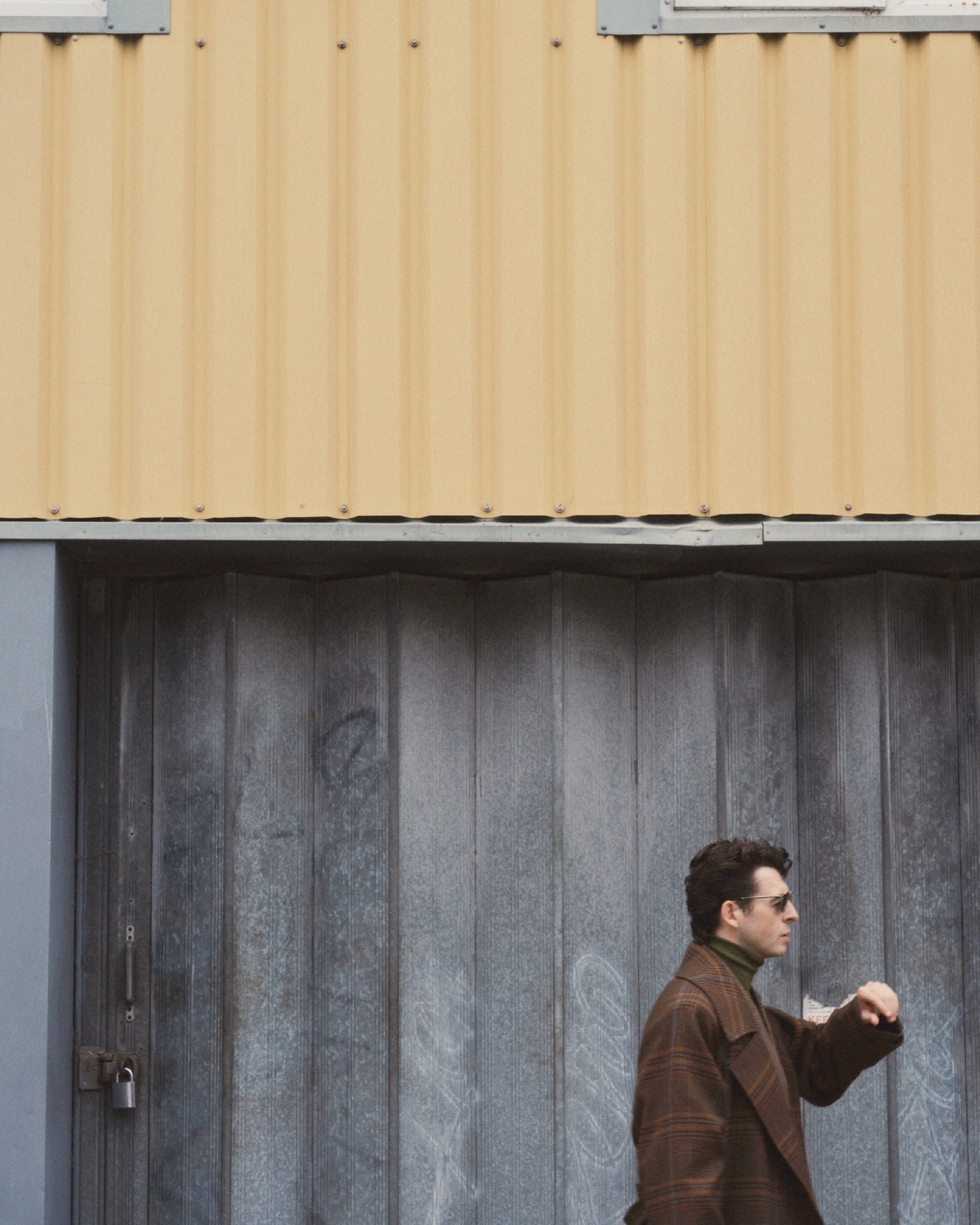
Anthony wears jacket, blazer, roll neck, trousers, shoes & sunglasses SAINT LAURENT
Photography
Matt HealyStyling
Luke DayGrooming
Liz Taw at The Wall GroupProducer
Drita CuranajLighting Tech
Cameron JackPhotography Assistant
Leigh SkinnerStyling Assistant
Zac SunmanVideography
Jay SentrosiEditor-in-Chief
Luke DaySenior Editor
Andrew WrightArt Director
Michael MortonProduction Director
Lola RandallJunior Art Director
Natasha Lesiakowska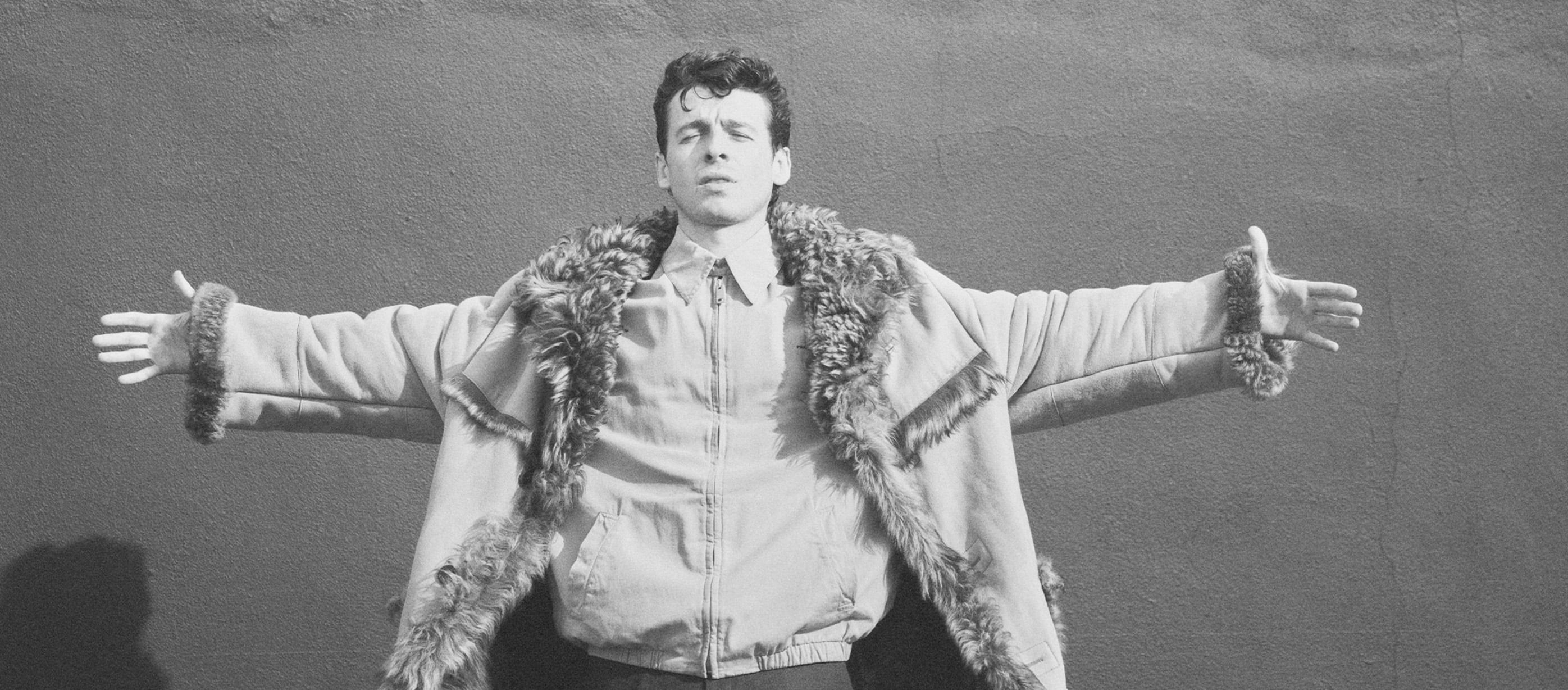
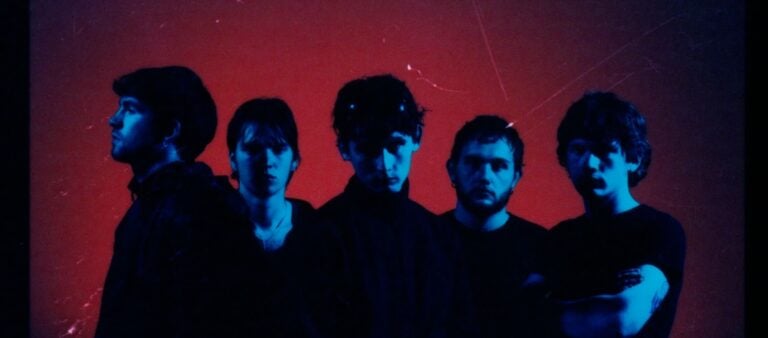
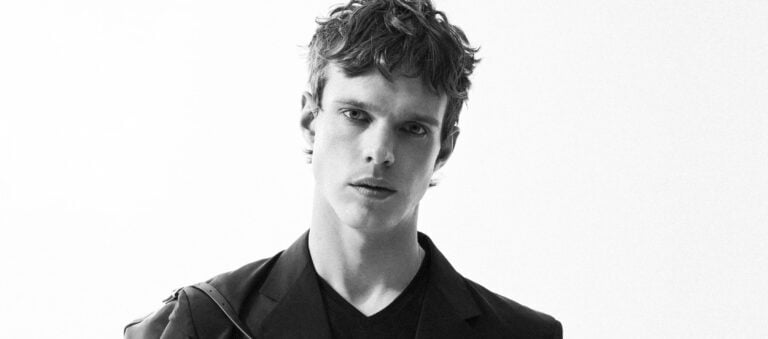
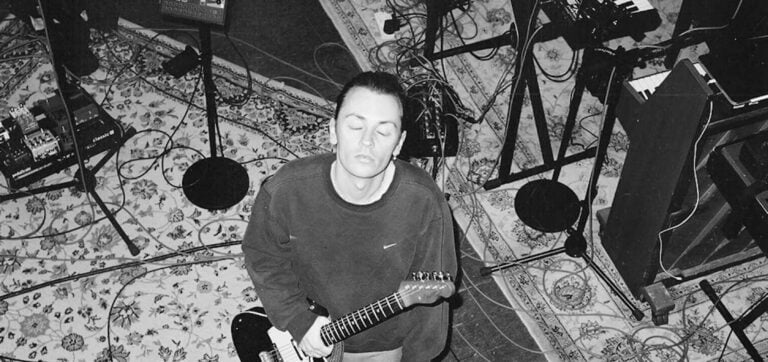
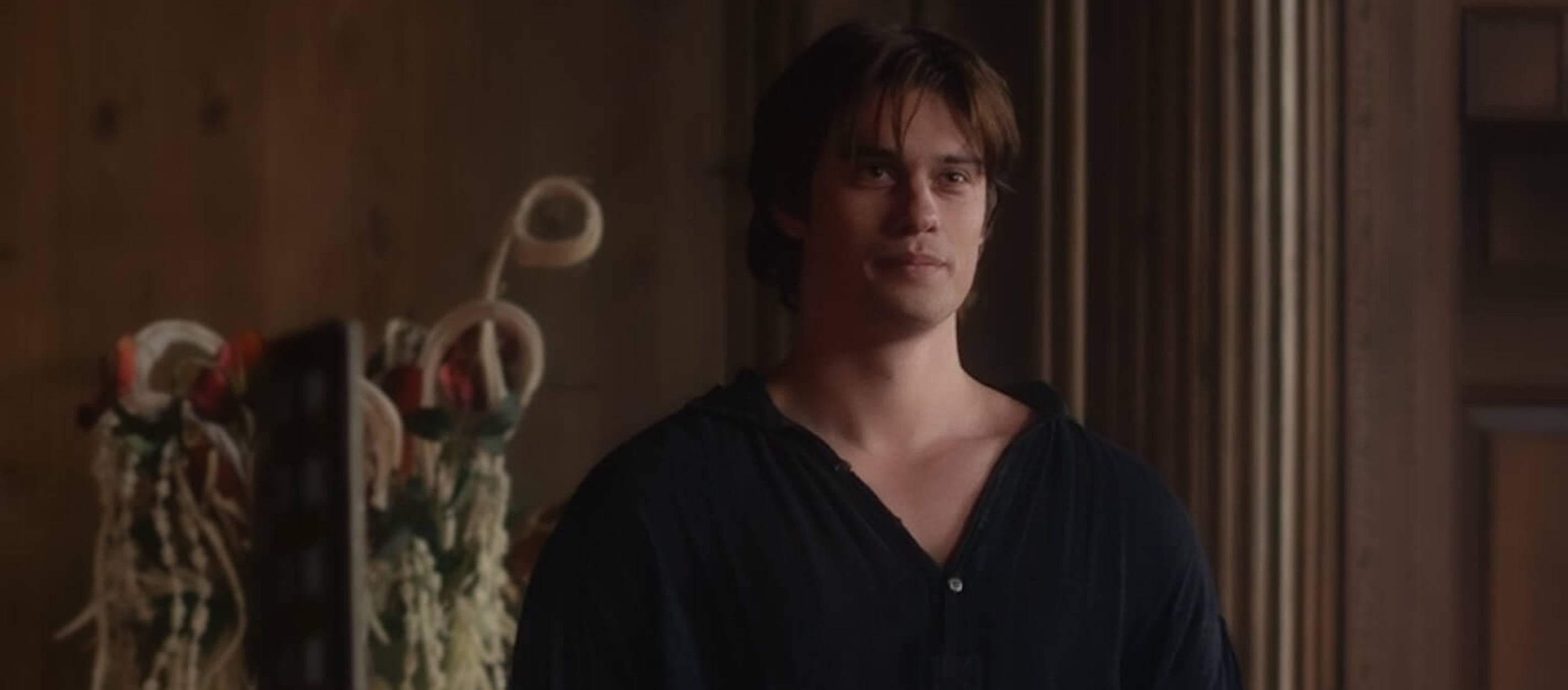
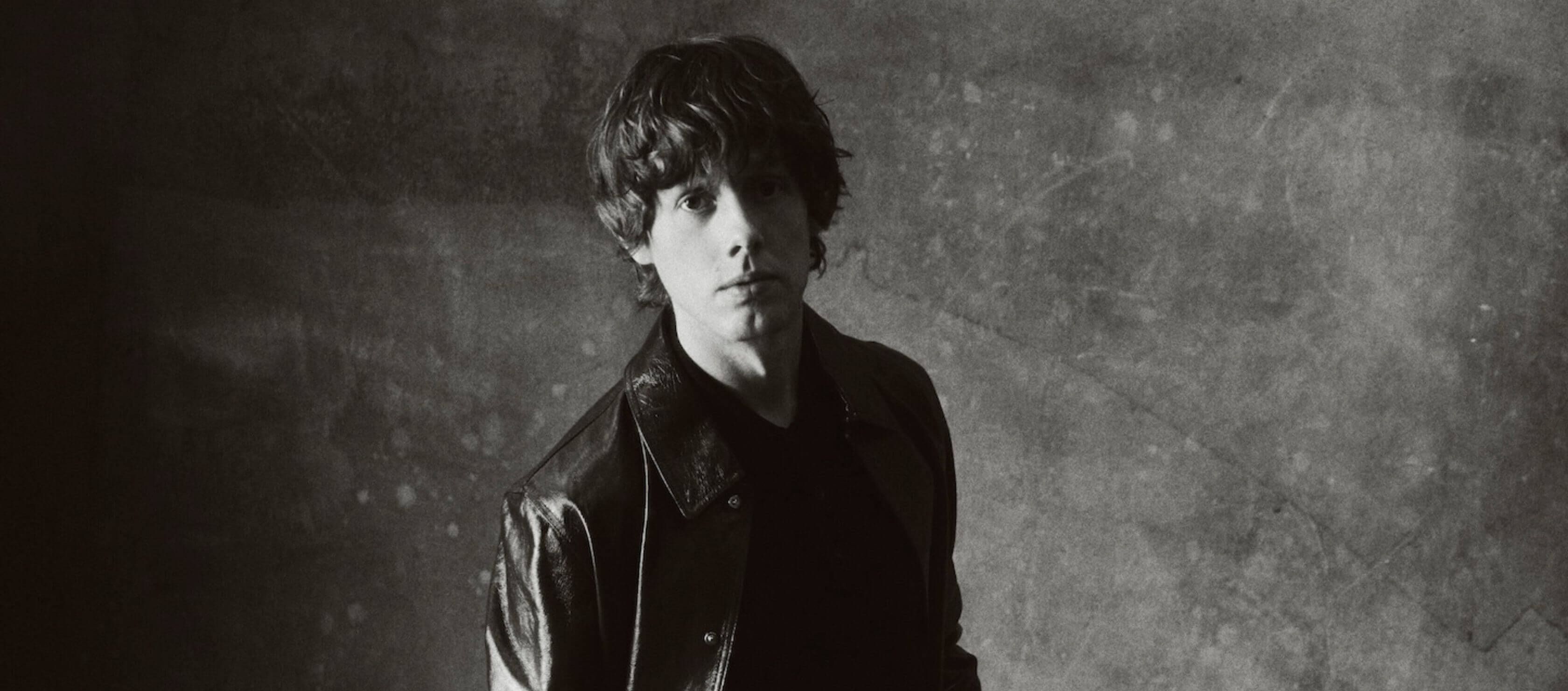
![Picture of “When We Were Developing Series [2], We Were Very Conscious Of The Live Debate About What It Means To Be British”: Tom Hiddleston On The Night Manager’s 2020s Comeback](/_next/image?url=https%3A%2F%2Fadmin.manabouttown.tv%2Fwp-content%2Fuploads%2F2026%2F02%2Fdigsfo.jpg&w=3840&q=85&dpl=dpl_AhPDpVcvBHi6ZdoK89nsTL2Qj1WA)
![Picture of “[The Bridgerton Press Tour] Is Like Being On Some Sort Of Hallucinogenic Drug”: Luke Thompson Is Next In Line](/_next/image?url=https%3A%2F%2Fadmin.manabouttown.tv%2Fwp-content%2Fuploads%2F2026%2F01%2FLUKE-THOMPSON-hero.jpg&w=3840&q=85&dpl=dpl_AhPDpVcvBHi6ZdoK89nsTL2Qj1WA)